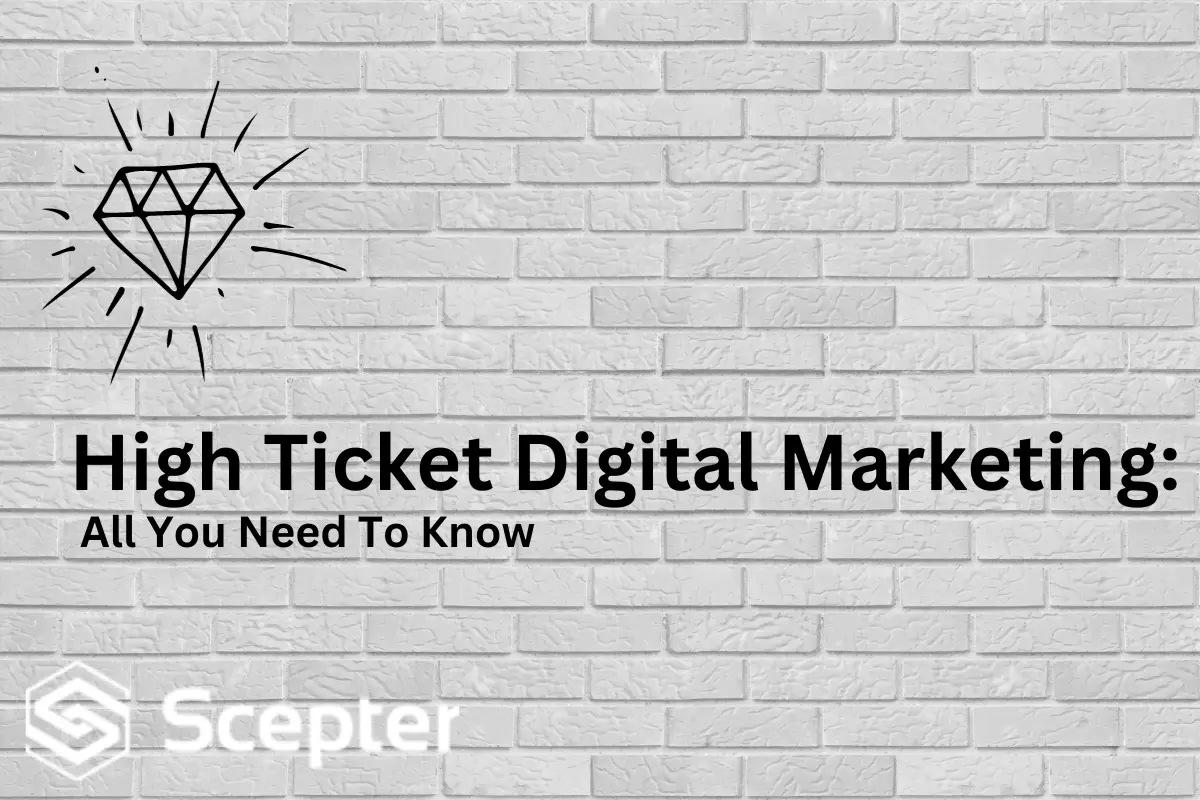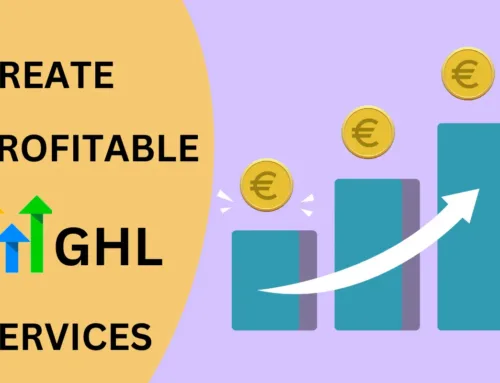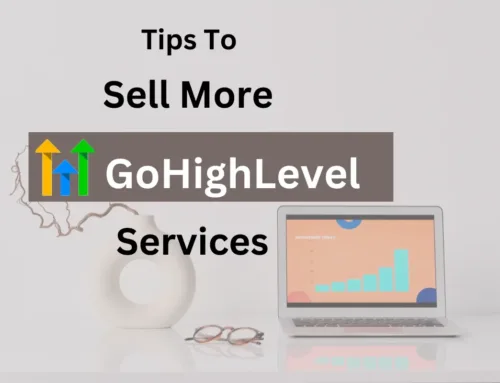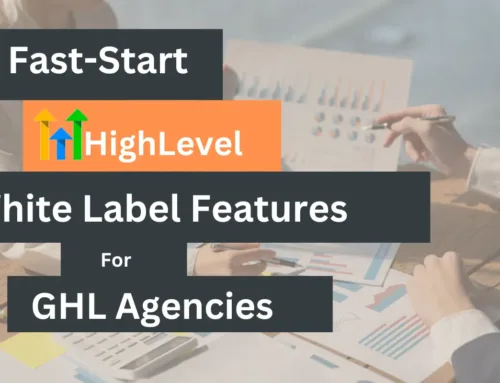Over the years, we’ve seen a myriad of marketing strategies take center stage, each bringing its unique flair to the vast digital marketplace. But, as businesses and products diversify, so does the approach to marketing them. Enter the realm of high ticket items—luxury products, exclusive services, specialized solutions—and the intricate dance of marketing them.
High ticket items aren’t just any products; they’re investments, and they demand a unique touch. But what exactly is high ticket digital marketing, and why is it becoming a buzzword in boardroom discussions and strategy think tanks?
Let’s dive deep into this fascinating world and unpack everything you need to know.
What is High Ticket Digital Marketing?
Picture this: instead of casting a wide net in the vast ocean of the digital marketplace, hoping to catch any fish that swims by, you’re diving deep with precision, targeting a specific type of fish—the prized, elusive kind. This is the essence of high ticket digital marketing.
At its core, high ticket digital marketing is the specialized approach to promoting products or services that come with a hefty price tag. These aren’t your everyday items; they’re luxury cars, bespoke software solutions, exclusive coaching programs, and more.
Given their value, the audience interested in these products is not only limited but also distinct. They have specific needs, aspirations, and buying behaviors that demand a different marketing touch.
While traditional digital marketing often focuses on volume—reaching as many potential customers as possible—high ticket digital marketing narrows its lens. It emphasizes quality over quantity, targeting a select group of potential buyers with a higher likelihood of making a purchase.
This form of marketing relies heavily on building trust, cultivating relationships, and offering impeccable value, ensuring that when a high-ticket sale occurs, it’s more than just a transaction—it’s an experience.
In essence, high ticket digital marketing is not just about selling a product or service. It’s about conveying the unparalleled value, exclusivity, and prestige that come with owning or accessing such a product or service. It’s a game where the stakes are high, but the rewards? Even higher.
What are High Ticket Products and Services?
Before we dive deeper into the nuances of marketing them, let’s pause for a moment to understand what exactly we mean by ‘high ticket products and services’. The term ‘ticket’ here doesn’t refer to an admission slip or a piece of paper, but rather to the price tag attached to a product or service.
High Ticket Products are those items that carry a hefty price tag, typically much higher than the average product in a given category. Think luxury cars like Lamborghinis or Bugattis, high-end electronics like the latest OLED TVs or top-tier camera equipment, and even premium real estate properties in prime locations. These aren’t your everyday purchases; they’re often seen as investments or luxuries.

Here’s a list of some high ticket products across various industries:
Luxury Vehicles:
- Supercars (e.g., Lamborghini, Bugatti, Ferrari)
- Luxury sedans and SUVs (e.g., Rolls Royce, Bentley, Maserati)
Real Estate:
- Luxury apartments and penthouses in prime locations
- Mansions and estates
- Beachfront villas
Jewelry & Watches:
- High-end brands (e.g., Rolex, Patek Philippe, Cartier)
- Bespoke jewelry pieces with rare gemstones
High Ticket Services, on the other hand, are premium offerings in the service industry. This could range from exclusive consulting services by industry moguls, bespoke interior design projects, high-end event planning, specialized surgeries or medical treatments, and even elite coaching programs. What sets these services apart is not just the price, but the exceptional value, expertise, or unique experience they offer.
Why do these products and services command such premium prices? Often, it’s a combination of factors. The brand reputation, the quality of materials or expertise involved, the exclusivity factor, and the intensive labor or time invested all play a role. These products and services cater to a particular segment of the market that values and is willing to pay for this elevated level of quality and distinction.
Why You Should Consider High Ticket Digital Marketing
In a world bursting with digital noise, the decision to specialize might seem counterintuitive. Why limit yourself to a smaller audience when the vast digital sea teems with potential customers?
The answer lies not in the size, but in the value. Let’s explore the compelling reasons why brands are making the strategic shift to high ticket digital marketing.
1. Higher Return on Investment (ROI)
For businesses, the bottom line is often the driving factor. With high ticket items, while the audience may be smaller, the profit margins are significantly larger. A single sale can equate to dozens, if not hundreds, of lower-priced item sales. The investment in attracting and nurturing this elite clientele can yield substantial returns, making every marketing dollar count.
2. Targeted Audience
Rather than shouting into the digital void, high ticket digital marketing allows for a laser-focused approach. By targeting a specific demographic with tailored messages, businesses can increase the chances of their message not just being heard but resonating deeply. This focus reduces wasted resources on uninterested parties and hones in on those who are truly prospective buyers.
3. Enhanced Customer Experience
High ticket buyers aren’t just looking for a product or service—they’re seeking an experience. By specializing in high ticket marketing, businesses can offer a more personalized, high-touch buying journey. From dedicated customer service to bespoke offers, this elevated experience not only attracts potential buyers but fosters loyalty and encourages repeat business.
4. Positioning and Brand Image
Specializing in high ticket items naturally elevates a brand’s image. It places the brand in an exclusive league, often perceived as premium or luxury. This positioning can be a powerful tool, attracting not only potential buyers of the high ticket item but also elevating the entire brand’s perceived value in the market.
Challenges in High Ticket Digital Marketing
Every silver lining has its cloud, and in the opulent world of high ticket digital marketing, challenges are as inherent as the opportunities. While the potential rewards are tantalizing, navigating this space requires a deft touch and an awareness of the unique hurdles that lie ahead. Let’s delve into some of the significant challenges brands may encounter:
1. High Customer Expectations
When individuals are prepared to part with a substantial sum, they invariably expect excellence in return. The bar is set exceedingly high, not just for the product or service but for every interaction they have with your brand. From the user experience on your website to the responsiveness of customer service, every touchpoint must exude quality and professionalism.
2. Intense Competition
The high ticket realm is not for the faint-hearted. With lofty rewards on the line, it’s a space teeming with competitors vying for the attention of a limited clientele. Brands must constantly innovate, staying a step ahead, ensuring their offer remains the most attractive in a sea of alternatives.
3. Cost of Acquisition
Attracting the creme de la creme of clients often comes with a price tag to match. Whether it’s investing in premium advertising slots, crafting high-end content, or engaging industry influencers, the cost of acquiring a high ticket client can be substantially higher than that of a regular customer.
4. Lengthier Sales Cycles
Decisions on high ticket items aren’t made on a whim. Potential clients will research, deliberate, compare, and sometimes even retreat before making a commitment. This extended decision-making journey means businesses must be prepared for longer sales cycles, requiring patience and consistent nurturing.
5. Necessity for Personal Touch
Automation is a boon for many digital marketing strategies, but in the high ticket domain, the personal touch is paramount. Prospective clients expect bespoke interactions, tailored offers, and direct communication. This demands more time, effort, and resources, sometimes making scalability a challenge.
Yet, it’s worth noting that challenges, as daunting as they might appear, also serve as gatekeepers. They filter out those unwilling to adapt, innovate, and rise to the occasion. For brands that tackle these challenges head-on, with strategy and determination, the world of high ticket digital marketing offers unparalleled rewards, establishing them as luminaries in a league of their own.
Strategies for Effective High Ticket Digital Marketing
With the allure of high rewards and the shadow of equally high challenges, it’s clear that a strategic approach is crucial for success in the high ticket digital marketing realm. But fear not, for where there’s a will, there’s also a way!
Let’s explore some tried-and-tested strategies to help brands navigate this elite marketplace with finesse and impact:
1. Affiliate Partnerships
Forge alliances with industry influencers and experts. Their endorsements can instantly elevate your brand’s credibility. By leveraging their reach and trustworthiness, you can tap into an already engaged and affluent audience, making your pitch with a solid foundation of trust.
2. Leveraging Testimonials & Case Studies
In the high ticket world, social proof is gold. Showcase testimonials from satisfied clients, detailed case studies, and success stories. Authentic reviews and tangible results can dispel doubts, build trust, and highlight the real-world value of your offering.
3. High-End Web Design
Your online presence must mirror the exclusivity of your product or service. Invest in a sophisticated, user-friendly website that resonates luxury and professionalism. The first impression matters, and a premium web design ensures it’s a lasting one.
4. Content Marketing
Continuously publish insightful, authoritative content. Whether it’s through whitepapers, eBooks, or long-form articles, your content should position you as the thought leader in your niche. This not only attracts potential clients but also nurtures them throughout their decision-making journey.
5. Retargeting & Email Campaigns
Given the longer sales cycles in high ticket sales, it’s essential to keep potential clients engaged. Retargeting ads can remind them of your value proposition, while personalized email campaigns can offer additional insights, bonuses, or answers to potential objections they might have.
6. Exclusive Offers & Limited Time Promotions
Create a sense of urgency and exclusivity. By offering limited-time promotions or exclusive bonuses for early adopters, you can expedite decision-making and give potential clients that final nudge toward a purchase.
7. Personalized Outreach
Engage in one-on-one interactions. Whether it’s through personalized emails, direct phone calls, or exclusive webinars, cater to your potential clients’ unique needs and concerns, offering solutions tailored to their specific situations.
With these strategies in your arsenal, the path to high ticket digital marketing success becomes clearer and more navigable. The key lies in combining the power of authentic engagement with the precision of targeted marketing. By doing so, brands can create an environment where high ticket offerings find their rightful owners—discerning clients who value and appreciate the unmatched excellence they bring.




